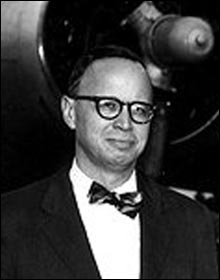
|
Arthur M. Schlesinger Jr.’s declining health over the past few years was not exactly a secret, but he managed to stay so sharp and funny up to the end that it was still a shock to hear of his death last week. I went to two events in his honor in the past few months, both in Boston. At the Massachusetts Historical Society, a tribe of academics and ancient friends of the Society showed up to hear a speech that we all knew to be a valedictory, even if no one wanted to admit it. When introduced, Arthur had a little trouble standing, and even after he succeeded it was not entirely clear that he had, because he had become so diminutive in advanced age. But then the old confidence returned, and he gave a speech that blasted the arrogance of the Bush administration — the personification of the imperial presidency Arthur warned against in his book of that name in 1973. It was feisty and great. I felt a little like I was listening to Orestes Brownson, the subject of Arthur’s senior thesis and obscure first book, an early sign of a lifelong interest in unorthodox thinkers working in the public realm.
A few weeks later, at the JFK Library, Arthur was in fine fettle. The crowd was large, unruly, and unacademic, and he clearly drew strength from it. This time he gave his speech seated from a wheelchair, and despite the sedentary position there was no holding him back. He lit into Bush and the people loved it. These were not ad hominem remarks, however; they were a spirited assault on a president who has committed blunder after blunder because of a proud ignorance of history. That to Arthur was unforgivable. It’s one thing to make a bum decision — all presidents do that. But to do so out of a belligerent misunderstanding of how we all got to this point in the life of the United States — that seemed especially unforgivable, especially from a president born in New England.
Surprisingly, Arthur was not himself a native, although his smarty-pants demeanor and almost comically enlarged bow ties made him seem like one, or at least like the stereotype of the New England academic that many Americans hold. He was born in Columbus, Ohio, where his father was a young history professor before coming east to Harvard, after a stint at Iowa City, when Arthur was all of seven. It’s true, he enjoyed a rather privileged education, attending Phillips Exeter Academy, then Harvard, and then joining the Society of Fellows in its peak years.
But it would be difficult to find someone less priggish or less inclined to self-glorification. And it would be impossible to find an academic who built a more creative, unconventional career for himself. It’s not just the famous stint in the Kennedy White House, it was a thousand other things he did that defied expectations — eschewing a PhD, reviewing movies for magazines, moving with ease from one topic and one century to another, writing speeches and furious opinion pieces in addition to learned tomes. His whole career was a rebuke to the idea of the cloistered academic. To the extent that he pulled it off — which he clearly did — I would argue that he was honoring the iconoclastic teachers who exposed him to the great saga of American history — the mid-century giants like Perry Miller, F.O. Matthiessen, and Bernard DeVoto. They were flawed human beings, but fought heroically against cant, and mediocrity, and the idea that history is a medieval guild, closed to outsiders. Arthur followed that high standard, and the world is a better place for his courage. In fact, we might not be here at all if it weren’t for him. I remember a story he told once about a single book, Barbara Tuchman’s The Guns of August, and how it might have saved humanity. At the time of the Cuban missile crisis, when the world was on the brink, John F. Kennedy got a hold of Tuchman’s book, which explained how a series of bone-headed military experts had embroiled Europe in World War I. Chastened by this lesson from history, Kennedy avoided the advice from his hardliners that would have plunged the world into darkness. What Arthur didn’t tell in his story, and what I wondered about afterward, was whether he had placed the book in Kennedy’s hands. Even if he hadn’t, it was comforting to know that a historian had once worked so closely with a president, and that a president had embraced the world of ideas so willingly.
Of course, no one can have strong opinions and avoid getting into trouble. Arthur got it from all sides — from right-wingers, naturally, who hated the fact that he corrected their simplistic ideas about the United States, but also from the left, especially after he had the courage to take on the academy in The Disuniting of America (1991). The medieval guild didn’t like that book. I’m not sure it liked any of his books — surely another tribute to his greatness.